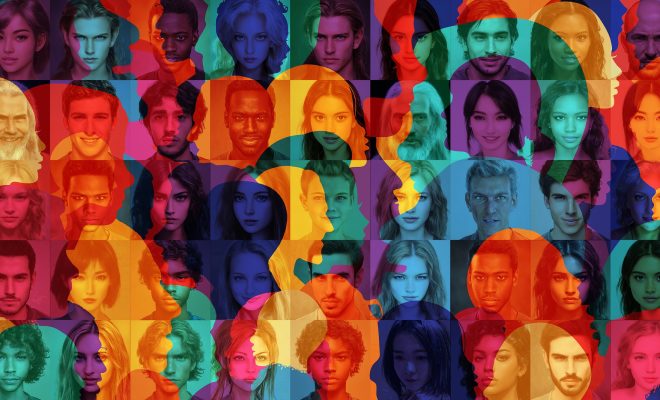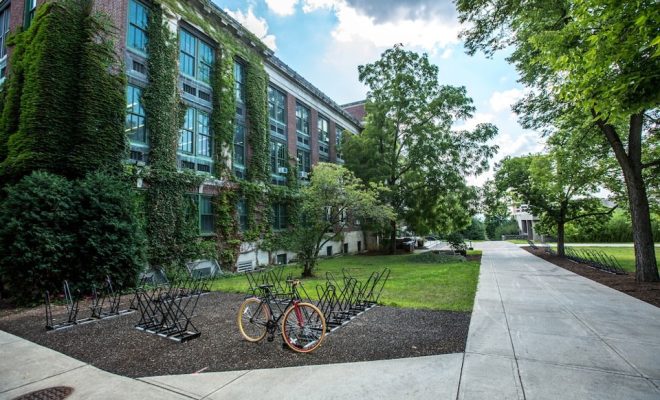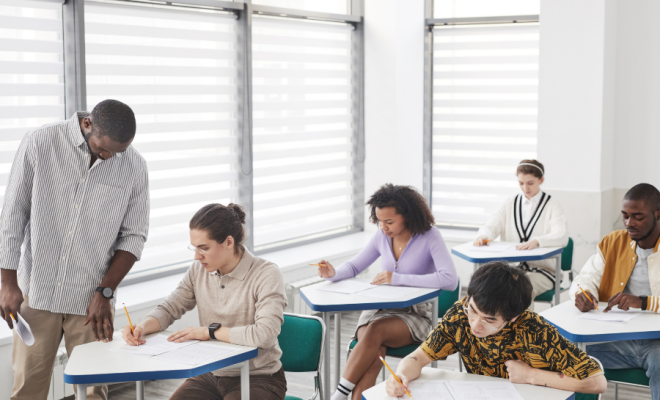Breaking barriers in higher education for and with students with disabilities

Higher education is a fundamental human right and public good that plays a pivotal role in the 2030 agenda, particularly in fighting inequalities. However, this mission cannot be fulfilled if students with disabilities are still facing barriers such as lack of accessibility and continued discrimination. Broad and meaningful partnerships are necessary to ensure quality, inclusiveness, and equity in higher education. With that responsibility in mind, UNESCO IESALC hosted a side event during the Economic and Social Council (ECOSOC) Youth Forum, titled “Supporting the Right to Higher Education of Students with Disabilities”.
Co-hosted by Queen’s University, the seminar took place on April 18, 2024, in the UNOSSC office in New York, with virtual attendance through Zoom. It was held in collaboration with the Stakeholder Group of Persons with Disabilities, the Office of the United Nations High Commissioner for Human Rights (OHCHR), the UNESCO SDG4 Youth & Student Network, the Global Student Forum (GSF) and the University of Gondar (Ethiopia), which sent keynote speakers to join the debates, and it was co-moderated by Bosen Lily Liu, Head of Partnership and UN Liaison at UNESCO IESALC and Eugenio Ciarlandini, Student Activist on Promoting Rights to Equity Deserving Groups, from Canada.
Beyond physical accessibility: gaps and opportunities for meaningful inclusion
UNESCO IESALC’s Director, Francesc Pedró, inaugurated the event, sharing the results of consultations led by the Institute which identified that around 80% of students with disabilities are dissatisfied with the inclusion measures at their educational institutions. Despite infrastructural improvements, these students expressed the lack of genuine inclusion from peers and faculty. Rio Hada, Chief of Equality, Development and Rule of Law Section in the OHCHR, echoed Director Pedró’s concerns, stressing the need for a holistic approach involving cultural and interpersonal changes to ensure full integration of students with disabilities in educational systems. Congruent with that, Heather Aldersey, Associate Professor at Queen’s University, underscored the chronic cycles of marginalization faced by youth with disabilities. She explained that multidimensional barriers hinder access to education at all levels resulting in limited opportunities for self-development and employment later in life.
Identifying herself as an autistic person and self-advocate, Juliette Gudknecht, Member of the UNESCO SDG4 Youth & Student Network, expressed her special concern for individuals with intellectual and developmental disabilities and those in active war zones or experiencing poverty, who lack access to basic rights, including higher education. Juliette also discussed the employment gap for autistic adults, with comprehensive approaches, including disability cultural competence training for faculty and staff, to tackle systemic ableism in academia. In this sense, as Molalign Adugna, Assistant Professor, University of Gondar (Ethiopia) commented, inclusion does not matter only for students with disabilities, it represents a positive change for every stakeholder in the education system.
Lydia Vlagsma, Youth Representative at the European Disability Forum and Stakeholder Group of Persons with Disabilities, underscored inaccessible physical and digital learning environments, interpersonal discrimination, and barriers to transitioning into the labor market as recurrent challenges among students with disabilities. As positive examples in promoting leadership of youth with disabilities leadership and the mainstreaming of disability rights within all SDGs, she highlighted the work of the International Disability Alliance and recommended a detailed reading of the ten-point action plan for disability inclusive development, led the by IDA and Sightsavers. On a similar note, Jacob Blasius, the Executive Director of the Global Student Forum (GSF), mentioned the responsibility of his organizaation in strenghtening the voices of students with disabilities in its advocacy efforts.
Following suit with successful practices, co-directors of the Queen’s University, University of Gondar and Mastercard Foundation Scholars Program, Heather and Molalign, presented a co-created 10-year initiative between their universities and the MasterCard Foundation, focused on empowering students and strengthening institutional capacities to better support them. Noteworthy for its holistic approach, the program goes beyond academic support to drive systemic change through improved accessibility, community integration, and international collaboration, with activities such as training in leadership, entrepreneurship, and job readiness, as well as job fairs with potential employers. The stories of inclusivity can be further explored through the video below:
The role of each stakeholder and the partnerships among them
A recurring theme throughout the event was the importance of collaboration among educational institutions, governments, communities, and international organizations to address systemic barriers and promote inclusive practices in higher education, always based in the principle of “nothing about us without us”. Multistakeholder partnerships are, therefore, a fundamental pillar for all the recommendations and calls to action provided by the speakers and audience, including:
- Cultural shift and awareness raising for more inclusive and respectful higher educational institutions.
- Adoption of human-centered pedagogies, universal design for learning, culturally sensitive practices, and the leveraging of technological innovations such as assistive devices and virtual learning platforms to enhance accessibility for students with disabilities.
- Ongoing training for all staff levels in higher education institutions to understand diverse forms of disabilities and promote reasonable accommodation.
- Capacity building to promote diverse leadership, especially among students with disabilities, to ensure they are meaningfully included at all levels of educational discussions and policymaking.
Related news
-UNESCO IESALC has published reports on the Right to Higher Education, including country case studies and data on specific equity-deserving groups available here.
RELATED ITEMS








